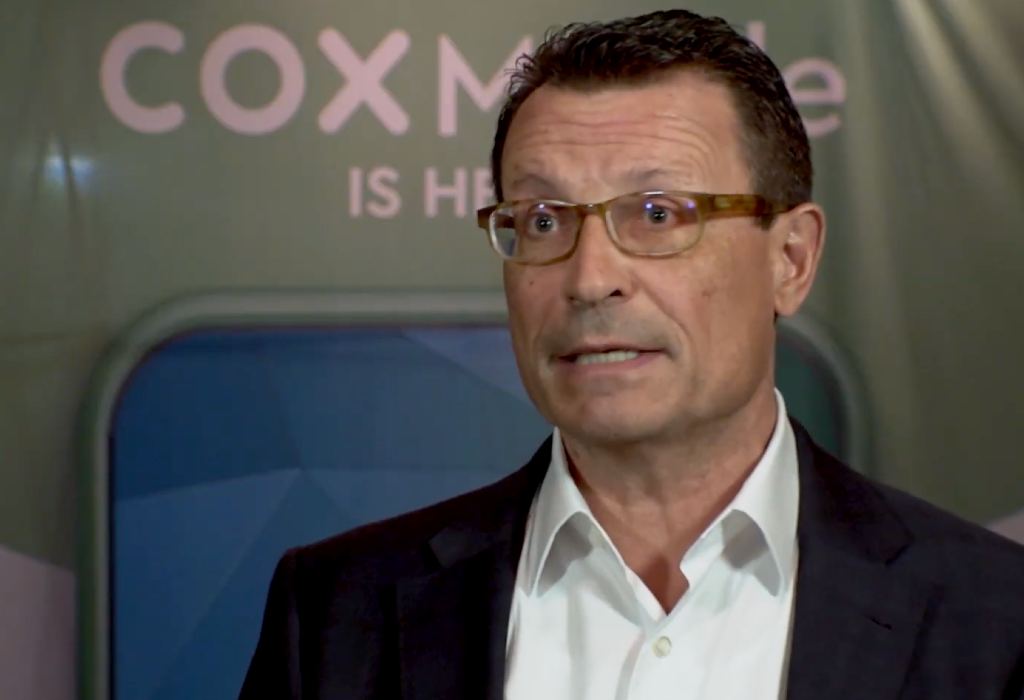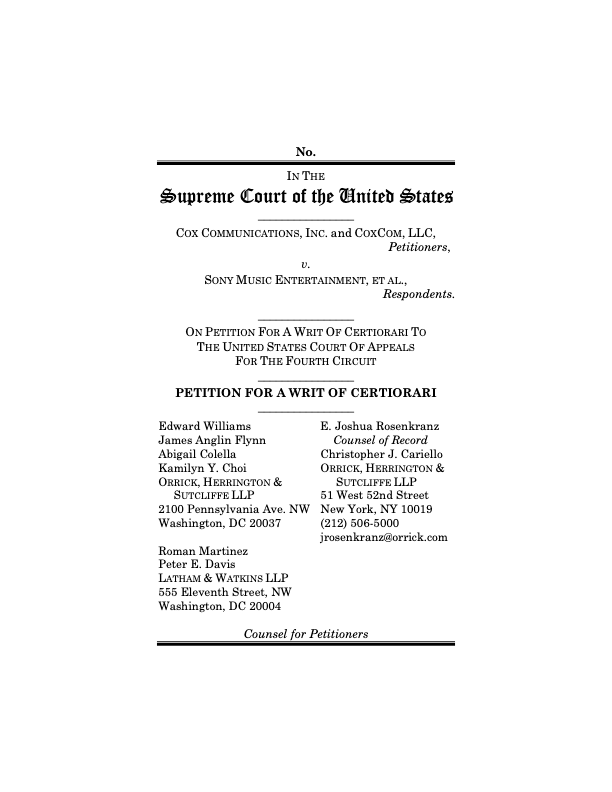Cox Asks SCOTUS to Reverse Copyright Infringement Ruling
The Fourth Circuit threw out a $1 billion penalty against the ISP, but upheld a verdict that found the company liable.
Jake Neenan

WASHINGTON, August 15, 2024 – Cox Communications, a privately held Internet Service Provider, asked the Supreme Court Thursday to review a lower court ruling that found the company responsible for its subscribers’ piracy and copyright infringement.

Cox Petition for a Writ of Certiorari
The Fourth Circuit Court of Appeals in February tossed out $1 billion in copyright infringement damages against the company, finding the verdict partly invalid. But the court upheld a finding that Cox could be held liable for copyright infringement if it did not terminate the internet connection of subscribers who pirate music.
“Imposing liability on providers merely because they continue providing service after receiving allegations of infringement at a given IP address will have dangerous and drastic consequences,” the company wrote in a petition filed Thursday.
A group of more than 50 record labels first sued Cox in 2018. The labels used bots to notify ISPs of suspected copyright infringement, and Cox said in the petition it dealt with those notices by sending email warnings to customers and sometimes moving to suspend or terminate service if notices persisted.
The music industry argued Cox was partly liable for their piracy, as it allowed subscribers to continue using the internet after repeated piracy notices. A Virginia jury sided with the labels.
In striking down the damages resulting from that case, the Fourth Circuit invalidated part of the verdict but upheld the finding of liability. Judges sent the case back for another jury trial to determine damages. The company asked the Supreme Court to step in and find it was not liable for any infringement.
“In practice, the accounts that continued to rack up notices without termination were regional ISPs, universities, hotels, military housing, and other business accounts used by hundreds or thousands of individual users,” the company argued.
Cox is one of the largest cable broadband providers in the country, claiming about 6 million subscribers.










Member discussion